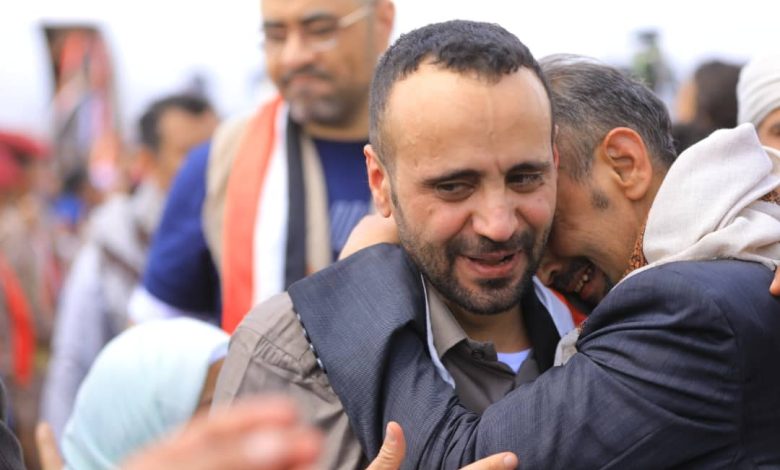
Yemen Monitor/Newsroom:
Yemeni journalist Abdulkhaliq Imran, who spent eight years in a Houthi prison, revealed details of the torture he was subjected to, noting that they described him as an enemy of God.
Imran explained in an interview with “The National” newspaper that the Houthis used psychological and physical torture to achieve their ideological goals, explaining that they used to beat them, flog them, and put them in solitary confinement.
Imran also spoke about the brainwashing attempts he was subjected to, where Houthi clerics described the detainees as hypocrites and apostates.
Imran believes that describing the ruling against him and his fellow journalists as a “death sentence” gives it legitimacy and changes its meaning, stressing that it is nothing but a Houthi “religious fatwa.”
Among the diseases that Imran and his fellow journalists suffered from were heart disease, enlarged liver, kidney and joint infections, herniated disc, respiratory infections, and nerve pain, some of the diseases that Imran hides under his elegant appearance, but the pain appears on his face whenever he talks about his story or moves his body.
Imran continues: “They put me in solitary confinement, in a cell that does not exceed one meter by one meter. It was dirty, cold and gloomy. When they took us out, they would hang us on the wall and flog us until we bled, then refuse to provide us with treatment.”
Imran adds: “They were not beating us to get information from us. They had all our data on our phones and devices. They were beating us because we represented an existential threat to them.”
He added that transferring detainees from one place to another was sometimes dangerous to their lives, noting that he and his colleagues were being transferred to sites expected to be bombed at any moment by the forces fighting the Houthis.
He continued, “They used us as human shields when they put us in weapons depots.” He continued, “In practice, our transfer (to military sites) was like moving from hell to the abyss.”
Imran says that one of the methods of torture that is little known, and which detainees in Houthi prisons are subjected to, is psychological torture.
He added, “They would play recordings for us for long hours, from sunset until midnight, of Houthi clerics publicly calling for our destruction and demise. They described us not only as enemies of the state, but as enemies of God.”
He continued: “During brainwashing attempts, Houthi clerics described the detainees as hypocrites and apostates.”
Imran and his released colleagues are seeking justice, as they aim to file a lawsuit before the Yemeni judiciary against the leaders of the Houthi militias who committed war crimes and crimes against humanity on them.
After seizing power, the Houthis launched a crackdown on the media, accusing it of undermining their ideological cause and their belief that they are the legitimate leaders of Yemen.




